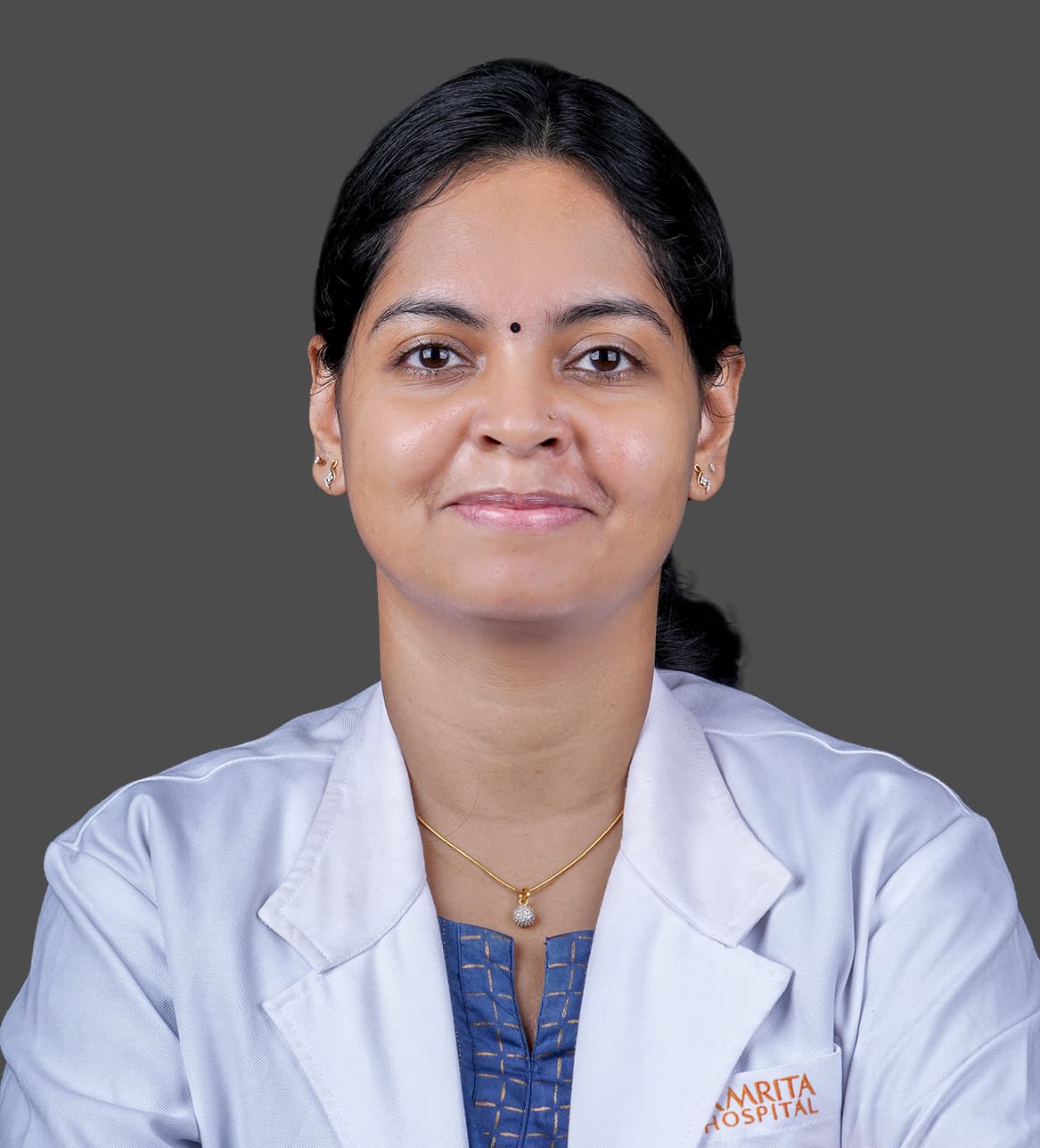Overview
The Department of Psychiatry and Behaviour Medicine provides comprehensive mental health services ranging from psycho-social treatments like counselling and psychotherapy to biological treatment modalities including pharmacotherapy and electroconvulsive therapy.
We are well equipped to manage acute to complex mental health conditions such as Depression, Anxiety Disorder, PTSD, OCD, Schizophrenia, Bipolar Disorder, Alcohol dependence, and other addictions.
Established in the year 2003, this department provides round the clock services for the treatment of mental health disorders. We deliver out-patients and in-patients services through precise diagnosis and evidence-based management involving medicines and psychotherapy. Our psychiatric experts conduct constant clinical researches to offer personalized treatments to our patients. We cater to a wide range of psychiatric disorders in people of all age groups from children to the elderly. An inspiring and stimulating academic environment, excellent clinical and diagnostic services embedded in a scientific milieu are what define the Department of Psychiatry and Behavior Medicine at Amrita Hospital Kochi.
Specialities
The various psychiatric subspecialties include:
- General psychiatry
- Child and adolescent psychiatry
- Addiction psychiatry,
- Community psychiatry,
- Neuropsychiatry
- Emergency Psychiatry
- Forensic psychiatry,
- Psychosomatic medicine
- Geriatric psychiatry
- Psychiatry of intellectual and developmental disabilities
- Consultation–Liaison psychiatry
Diseases Treated
A wide variety of mental, emotional and behavioural disorders are diagnosed and treated in our department. Major conditions are listed below:
- Alcohol, tobacco and other psychoactive substance addictions
- Schizophrenia, psychosis, schizotypal and delusional disorders
- Mood disorders including Bipolar Affective disorders (BPAD), Depression
- Neurotic, stress-related and somatoform disorders: Anxiety, Phobias, Post Traumatic Stress Disorders (PTSD), Obsessive Compulsive Disorders (OCD)
- Behavioural syndromes, eating disorders (Anorexia, Bulimia nervosa), Sexual Dysfunction
- Disorders of personality and behaviour in adult persons, Impulse Control Disorders (Internet/Gaming Addictions), Gender Identity disorders
- Mental retardation, Behavioural issues related to Intellectual Disability
- Disorders of Psychological Development, Specific Learning Disabilities, Autism Spectrum disorders
- Behavioural and emotional disorders with onset in childhood and adolescence, ADHD, Conduct disorders, Tics and Tourette’s
- Organic disorders; Behavioural and Psychological Symptoms in Dementia (Alzheimer’s, Parkinson’s), Delirium
- Insomnia
- Post partum blues, depression and psychosis
Features
- One of the largest tertiary psychiatric referral centre in Kerala for complicated mental health disorders like Refractory Schizophrenia, OCD and addictive disorders.
- Improving the mental health of our patients through holistic assessment of their special medical, psychological and social needs in an environment of comfort and privacy.
- The department is ably supported by the departments of clinical psychology and social work in providing neuro-psychological and psycho-social services.
- Liaison with departments of Molecular Biology, Nanosciences, Genetics and Functional Imaging for research into the aetiology of complex mental health conditions.
- Liaison with Department of Paediatric Neurology and Child Development Centre
Out Patient Services
- The outpatient department functions from Monday to Saturday, 8 AM to 5PM.
- Tele-consultation services - On all working days
Book your appointment: 0484 - 2858490, 0484 - 6688490
Service
- OPD services
- Psychiatry IPD: 40-bedded in-patient services including General ward, Semiprivate room and private room
- Recreation room and Library facility for patients
- Tele-consultation services - On all working days
- Drug and Alcohol De-addiction Facilities
Academy
Academic courses at the department of Psychiatry and Behavioral Medicine includes post graduate programmes for MD degree and Diploma in Psychiatric Medicine from the year 2009 onwards. Currently, the department accepts 4 candidates for MD residency in Psychiatry, per year, through NEET- PG.
The program offers an opportunity for residents to receive training in general psychiatry and to begin a career balanced with clinical and academic possibilities. As one of the leading centres in the nation for medical education, advanced patient care and biomedical research, Psychiatry & Behaviour Medicine, Amrita, has a long tradition of preparing physicians for careers in psychiatry.
Clinical training is broadly diversified with many peripheral postings to permit residents to broaden their knowledge. Training sites include inpatient, outpatient setting within the hospital, General Hospital (District Residency Program), and community psychiatry settings (Amrita Community Health Centre). The department offers a broad range of research opportunities for residents who work closely with an extremely collaborative faculty.
Distinguished faculty with expertise in general adult psychiatry, child and adolescent psychiatry, addiction psychiatry, community psychiatry, forensic psychiatry, psychosomatic medicine, and geriatric psychiatry ensures the best in post graduate medical education.
Undergraduate Medical students are also given training in the department in order to equip them to understand and treat common mental disorders in the community.
The department conducts yearly accredited Continuing Medical Education (CME) programs for developing and maintaining the knowledge, skills, and clinical efficacy of the residents.
Gallery
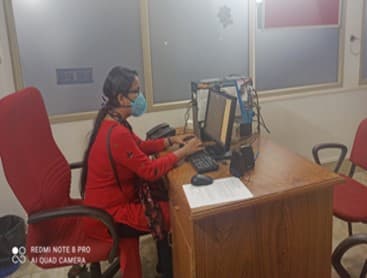
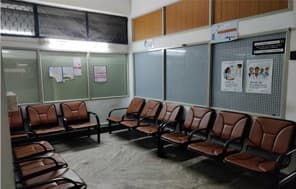
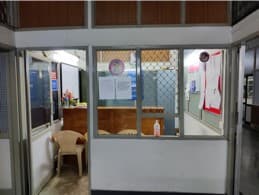
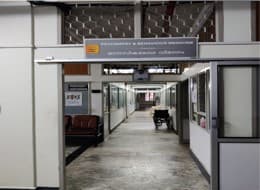
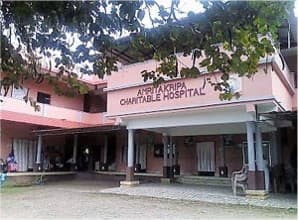
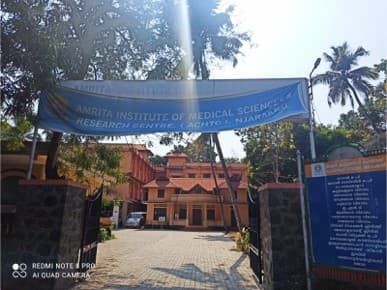
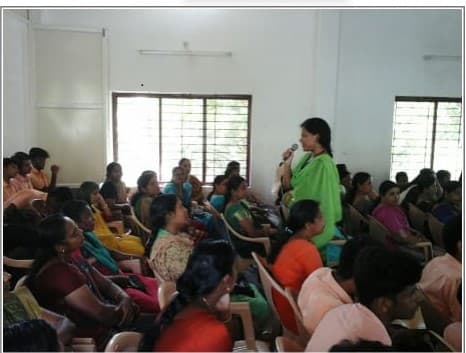
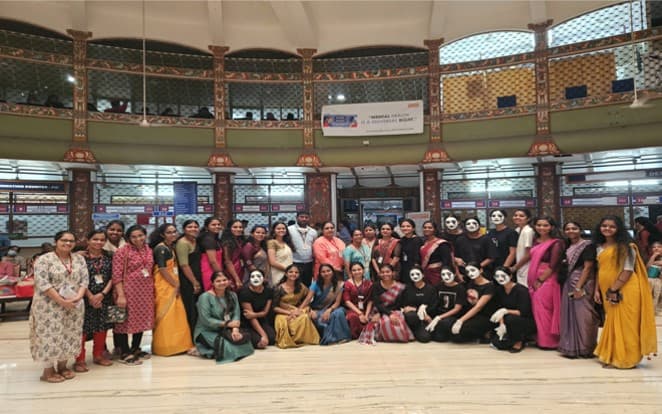
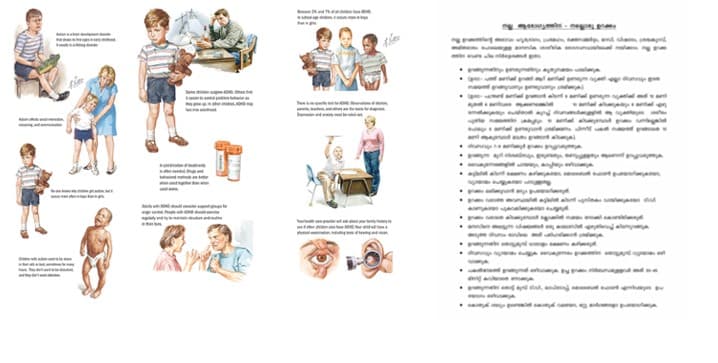
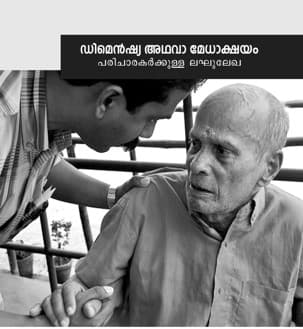

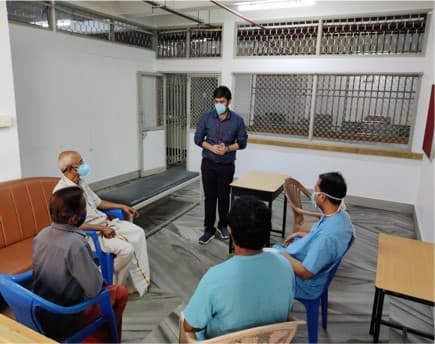
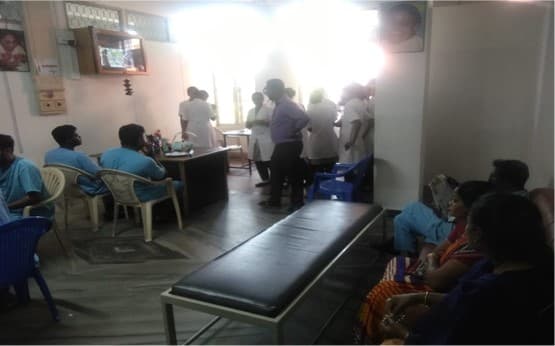
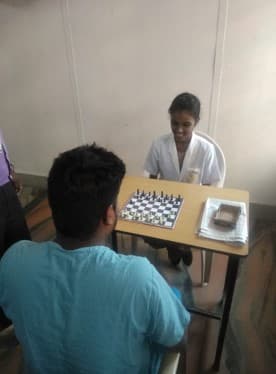
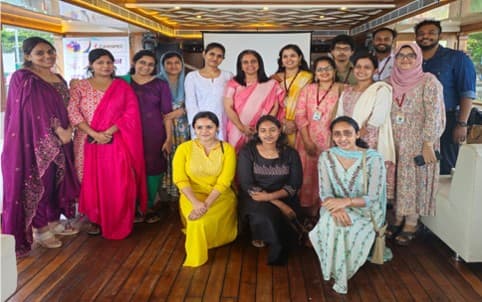
Facilities
- Biofeedback: For Psychosomatic disorders like chronic headache, anxiety, pain, fatigue
- Sex Therapy: For male and female sexual dysfunctions
- Electro Convulsive Therapy
Fellowship Programmes/Trainings
- 3- year MD Residency Programme
FAQ
Mental illness may be managed by psychiatrist, psychologists, psychiatry social workers and counsellors. However, a psychiatrist is the only mental health professional who can prescribe medication for mental illness.
Mental illnesses may be treated by medications, psychotherapy sessions or a combination of both, or by electroconvulsive therapy, depending on the illness type and severity.
This is not true. A psychiatrist also treat common conditions like anxiety disorders, depression, phobias, panic disorders, anger issues, alcohol or tobacco dependence, academic impairment, behavioural problems etc. You may consult a psychiatrist for even minor issues and get suitable advice.
The duration of treatment depends on the nature of mental illness. Not all prescribed drugs are meant to be used forever; in fact, most patients receiving treatment for psychiatric issues are eventually able to wean themselves off medications. A lower percentage of patient, however, may require medicines for an extended period of time, or perhaps their whole lives.
There are certain medications prescribed by Psychiatrists that have addictive potential. These includes benzodiazepines like clonazepam, lorazepam, and stimulants like methyl phenidate. Majority of psychiatric medications do not cause dependence and can be stopped without craving or withdrawal symptoms.
ECT or Electroconvulsive therapy or ‘shock treatment’ in common parlance, is a treatment modality that involves sending an electric current through your brain. The procedure is undertaken only for severe mental disorders and under anaesthesia cover so that patient feels no pain. ECTs are highly efficacious and generally safe.
First and foremost, patients need to realise and accept that their alcohol or other substance use is a disorder that needs to be treated. We provide both detoxification and de-addiction services. However, relapses are common and hence patient will need close psychiatric follow up to maintain abstinence.
This is a common problem. Patients might be unwilling for psychiatric treatment but caregivers might ask for the same. In such cases, detailed evaluation needs to be undertaken with regards to the insight, judgement and intellectual capacity of the patient and thereafter make decision on a case to case basis. There is a provision for involuntary admission with high support needs under the Mental Health Care Act, 2017.
Speciality Clinics
- De-Addiction Clinic
- OCD Clinic
- Geriatric Clinic
- DSH Clinic
- Organic and Behavioral Disorder Clinic
- Child and Adolescent Clinic
- Transgender Clinic
- Mind & Gut Clinic
Diagnostic Tests and Procedures
Department of Psychiatry, in collaboration with department of Clinical Psychology undertakes a multitude of diagnostic tests and assessments:
- Neuropsychological Assessments
- Personality Tests
- Projective Diagnostic tests
- Assessment of child- Intelligence Quotient, Specific Learning Disability, ADHD & Autism Spectrum Disorder
Outreach Program
- Mental Health Awareness programs in schools, colleges and corporate
- Substance Addiction Awareness campaigns,
- Suicide Prevention Campaigns
- Outreach Clinics in Community Health Centres- Kaloor, Njarackal, Amritakripa Charitable Hospital Vallikavu
Treatments
Biological therapy
Pharmacotherapy: Psychopharmacotherapy is one of the mainstays of the treatment of psychiatric disorders.
Electro Convulsive Therapy (ECT): Electroconvulsive therapy has been demonstrated to be an effective and safe treatment for many psychiatric disorders.
ECT services are available at Amrita since 2010 onwards. Dept of Psychiatry, AIMS is a referral centre for international patients requiring ECT.
Psychosocial Interventions
The main aim would be to provide psychological support for the patient and caregivers. It also involves assessment and improvement of family dynamics.
Brief interventional strategies – Therapeutic techniques, both pharmacological as well as non-pharmacological, with focus on intermediate goals of the deaddiction program while paving the way towards achieving long term abstinence. The main tools used here would be psychoeducation and harm reduction techniques.
Motivation Enhancement Therapy – A counselling approach that helps individuals resolve their ambivalence about engaging in treatment and stopping their drug use. This approach aims to evoke rapid and internally motivated change, rather than guide the patient stepwise through the recovery process. This therapy consists of an initial assessment battery session, followed by two to four individual treatment sessions with a therapist.
Relapse Prevention Therapy – Therapy aimed at employing a set of cognitive and behavioural strategies with the aim of maintaining abstinence and preventing relapse of substance use.
Family Therapy – Therapy involving families to help patients overcome their addiction. Identification of dysfunctional relationships and involving family members in the treatment process can go a long way in helping patients achieve their goal of abstinence.
Group therapy – Therapy sessions involving all the patients and caregivers together are scheduled every week. The sessions will be both psychoeducational as well as process oriented. This would help the patients and their families develop a sense of belonging, boost their confidence, and improve adherence to treatment.
Contact Us
Phone: 0484 - 2858490, 0484 - 6688490
Email: [email protected]


